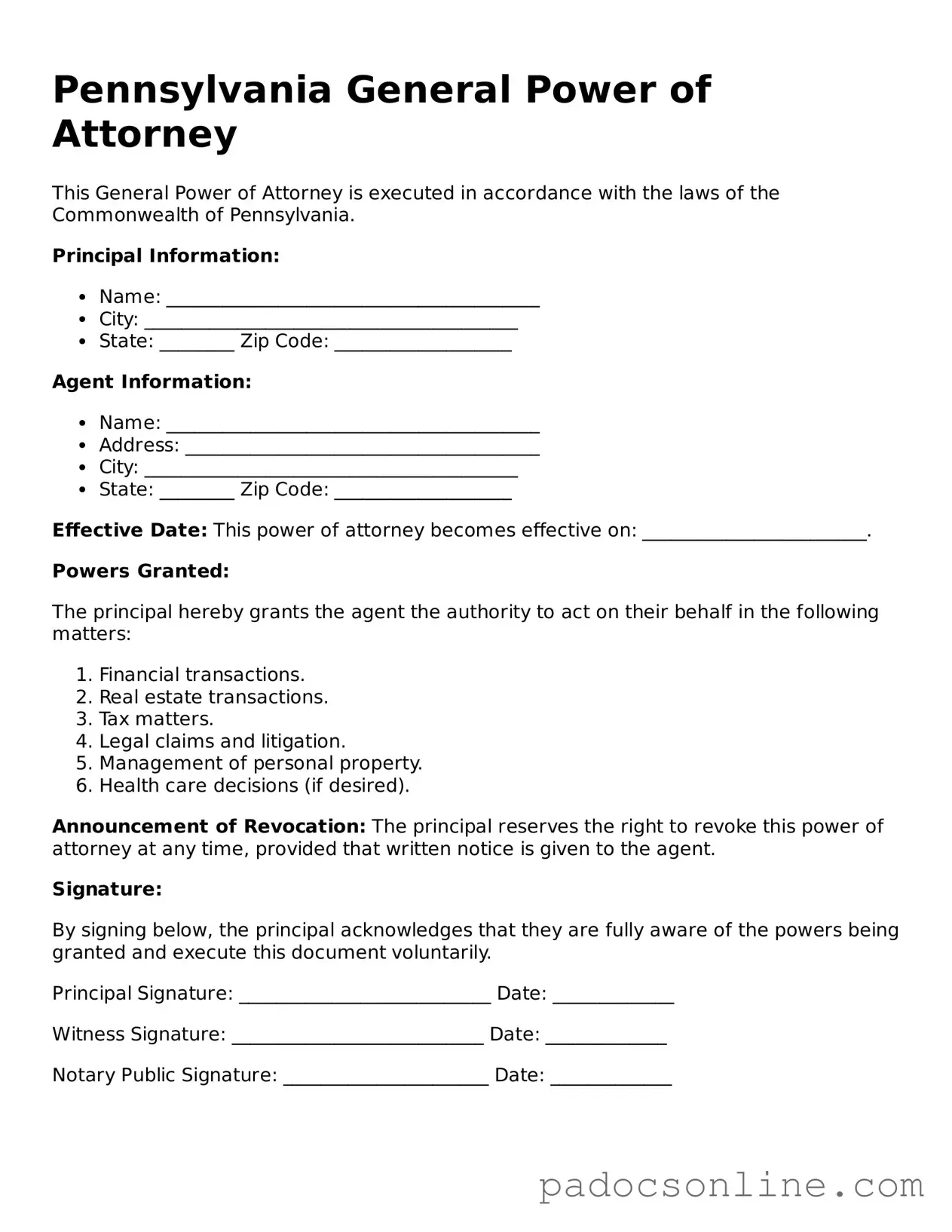Filling out the Pennsylvania General Power of Attorney form can be straightforward, but many people make common mistakes that can lead to complications. One frequent error is not specifying the powers granted. The form allows you to tailor the authority given to your agent, but failing to be clear can create confusion and limit your agent's effectiveness.
Another mistake is neglecting to date the document. A date is crucial for establishing when the powers begin. Without it, there may be disputes about the validity of the authority granted. Similarly, some individuals forget to sign the form, which is essential for it to be legally binding. A signature indicates your consent and intention to grant authority.
People often overlook the requirement for witnesses or notarization. In Pennsylvania, a General Power of Attorney must be signed in the presence of a notary public or two witnesses. Skipping this step can render the document invalid. Additionally, using outdated forms can be problematic. Laws change, and using an old version may not comply with current regulations.
Another common error is failing to inform the agent about their responsibilities. It’s important to have a conversation with the person you’re designating to ensure they understand their role and the powers you are granting them. Without this communication, misunderstandings may arise later.
Some individuals also forget to review the form after filling it out. Double-checking for any mistakes or omissions can save time and prevent legal issues. Lastly, many people assume that a General Power of Attorney remains valid indefinitely. However, it’s important to understand that this authority can be revoked or may become invalid under certain circumstances, such as the principal's death or incapacity.
